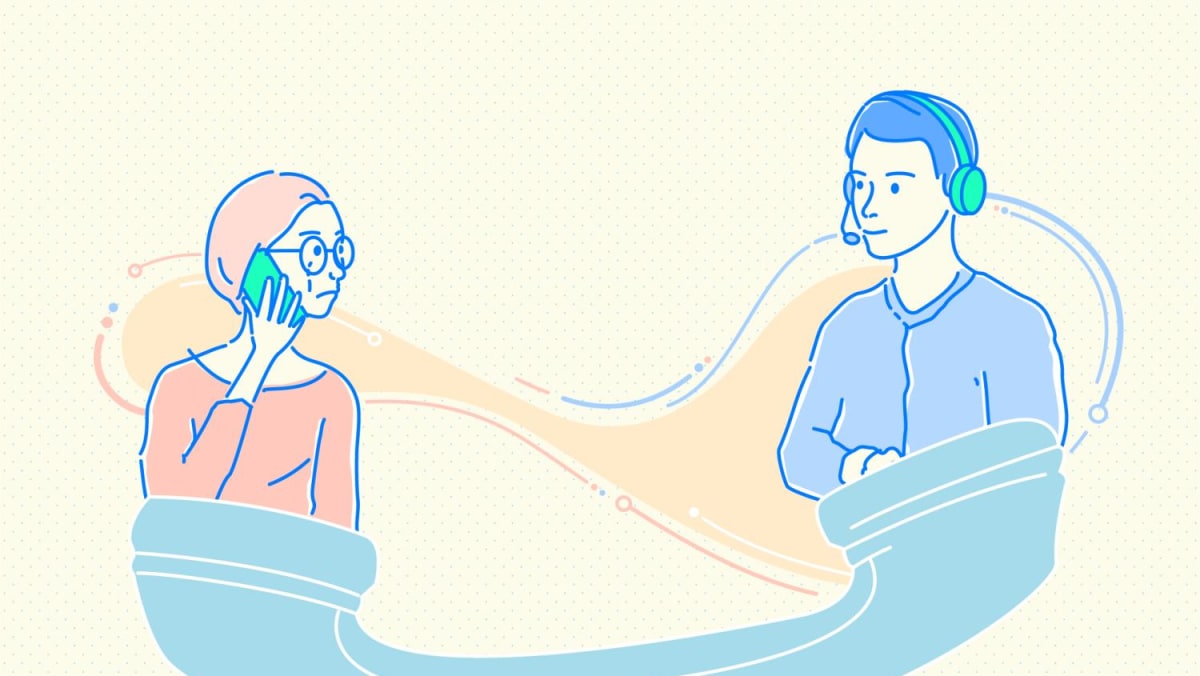
Increasingly, people are becoming aware of the importance of mental health and well-being in our lives. In our weekly Gen Zen series, TODAY looks at ways that we can feel better while coping with the mental stresses of modern life.
 By
By
Nikki Yeo
WHY YOUTH CALL FOR HELP
The non-judgemental and confidential space offered by a helpline can support youth who may need a listening ear on issues affecting their mental health.
Ms Andrea Chan, head of Touch Mental Wellness at Touch Community Services, said: “We also receive calls from young adults who are finding out if what they are facing is normal. Generally, there is a lack of knowledge and a sense of helplessness when they call for help.”
Agreeing, Ms Aisyah said: “Sometimes, people have this mindset that seeking help is a weakness, but it is a form of empowerment.
“I always have this idea that it is okay to not be okay. But it’s not okay to remain not okay.”
Youthline said that one third of the texts and calls from youth tend to be regarding mental health conditions such as anxiety, depression, delusions or hallucinations.
Another third have psycho-social problems such as stress, concerns regarding self-esteem and self-worth, or a sleep disorder.
A third of their clients reach out regarding high-risk conditions such as suicidal thoughts, self-harm, sexual assault, bullying as well as relationship and family issues.
At Touchline, the youth tend to call to discuss challenges in school or relationship problems with a partner or family member.
“Over the years, the demands on youth have increased. Besides the usual familial, social and academic stress, they also need to juggle a digital identity and the complexity of being in a highly globalised world,” Ms Chan said.
THE POWER OF REACHING OUT
Taking the first step to reach out for help takes courage, but Ms Aisyah said that young people who do seek help can find access to “abundant resources” such as helplines and free counselling services.
A helpline can serve as a first point of contact, as a space for them to feel welcomed and assured that their concerns will be taken seriously and their feelings validated, while also being a way to link them up to relevant resources.
Ms Aisyah said: “If you really don’t know what (resources) are meant for you, it’s okay, you can just reach out and express what you need or what your issue is and you will get referred to somewhere that is much more helpful to your situation.”
Mr Wong said that helpline care officers are trained to support the caller to share more about the problem they are facing and to explore the resources and coping strategies or solutions they may have already tried.
They also help the individuals to explore other options or resources they can consider to address their problems.
Reaching out to one’s social system for support is key, Mr Wong said.
“Sometimes you’re so caught up in your work, studies and life and you think, ‘Okay, never mind, I’m going to say no to meeting my friends, I’m going to say no to spending time with my mum and taking a walk in the Botanic Gardens… But sometimes, you have to say yes to these things, because these things are important and you get to spend time with family and friends, and be in nature.”
Ms Chan from Touch Community Services said that being willing to reach out for help and talk to a family member or friend who can provide support, or seeking professional help if the thoughts or challenges one is facing become unmanageable,is a key way to protect mental well-being.
“The path to mental wellness is not necessarily linear. Periods of high stressors may come our way, but one thing we can do is to band together and provide that support to each other,” she added.
People should also diversify their support system, Ms Aisyah said.
“The support system you are dependent on may get exhausted and burnt out, and sometimes may not be able to attend to you fully. So getting a wide range of support systems is important. Plus, it helps to have different perspectives,” she added.
WHERE TO SEEK HELP
If you, or anyone you know might want to talk to someone, you can reach out to one of the helplines below.
Youthline: +65 6436 6612 (call), +65 8533 9460 (text) and over email at hello [at] youthline.sg.
Youthline is dedicated to individuals up to 35 years old and provides free mental health support to youth via phone, email or a live chat service. It runs from 9am to midnight daily. Calls outside of operating hours are redirected to Samaritans of Singapore or the Singapore Civil Defence Force for emergency medical services.
Touchline by Touch Community Services: 1800 377 2252
Touchline provides free counselling services at the phone line above for the general public. Touchline is run by 30 counsellors or social workers who are rostered to take calls from Mondays to Fridays, during the hours of 9am to 6pm.
Samaritans of Singapore: 1767 (call), 9151 1767 (WhatsApp text) and over email at pat [at] sos.org.sg.
Samaritans of Singapore provides round-the-clock confidential emotional support for individuals in crisis, thinking about or affected by suicide. The call and text-based services are operational 24 hours a day, every day of the week.
Collapse to view Expand to view